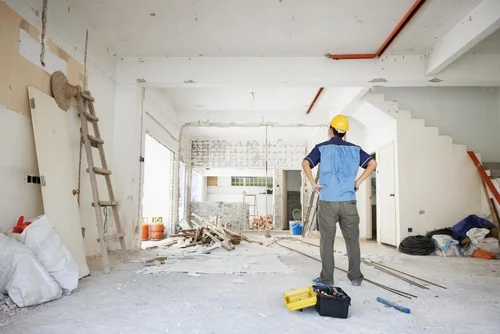When renting a self-storage unit, most renters don’t give much thought to what could happen if something goes wrong. While these units are designed to keep your items safe, there are still risks that might not be immediately obvious.
From accidental damage to theft, fire, or natural disasters, your belongings could be at risk. This is where self-storage insurance Policy discovery comes into play. But is it really necessary for renters?
Let’s dive into why having the right coverage is essential and what it can protect you from.
Why Self-Storage Insurance Is Important for Renters
Self-storage insurance acts as an additional layer of protection for your belongings. If you’re storing valuable or sentimental items, it’s important to have coverage in place.
While self-storage facilities often offer physical security, such as locked gates and surveillance cameras, they typically do not cover the personal contents within the unit. In the event of an unexpected incident like a fire or flood, insurance can help ensure that you’re able to recover the value of your items.
For example, if you’ve stored valuable items, such as a collection of vintage comic books, and a pipe bursts within the facility, your belongings could be damaged. Without insurance, you would likely be left to cover the cost of replacing those items on your own.
Top Risks Renters Face Without Storage Unit Insurance
It’s easy to assume that everything will be fine, but life doesn’t always work out as planned. Here are some risks that renters face when they forgo self-storage insurance:
1. Theft
Although most self-storage facilities invest in robust security systems, no place is completely immune to theft. If your items are stolen, you could face significant financial loss. Unfortunately, the facility is unlikely to compensate you for your stolen belongings, leaving you with no recourse.
2. Fire or Water Damage
Unexpected events like fires, floods, or burst pipes can cause serious damage to the contents of your storage unit. While facilities may have fire suppression systems in place, these cannot guarantee protection against every possible scenario. Self-storage insurance helps cover the cost of replacing damaged items.
3. Vandalism
Although it’s less common, vandalism can still occur. Whether someone intentionally damages your items or acts recklessly, without insurance, you may be left with no compensation for the damage caused, leaving you to bear the financial burden.
4. Natural Disasters
Natural disasters, such as hurricanes, tornadoes, or floods, can affect entire facilities. While these events may not be predictable, having insurance in place ensures that you’re covered if such a disaster strikes.
5. Mysterious Accidents
Sometimes, accidents happen without warning. Whether it’s a box that falls over, a valuable item that breaks, or something else, self-storage insurance provides coverage for unexpected mishaps that could lead to damage or loss.
Key Features to Look for in Self-Storage Insurance Policies for Renters
Not all self-storage insurance policies are the same. When shopping for the right storage insurance, it’s essential to keep an eye out for these key features:
1. Coverage Limits
It’s important to understand the maximum amount your insurance will cover. Some policies offer only partial coverage, while others provide full protection. Ensure that the coverage limit aligns with the value of your belongings. You don’t want to find out your policy doesn’t cover your vintage jukebox, for example.
2. All-Risk Coverage vs. Named Perils
Some policies cover a wide range of incidents, including theft, fire, and vandalism (all-risk coverage). Others may only cover specific risks, such as fire or theft (named perils). All-risk coverage is generally more comprehensive and provides broader protection, making it a more reliable option.
3. Deductibles
The deductible is the amount you must pay out of pocket before your insurance begins to cover your losses. Be sure the deductible is reasonable and affordable for your budget. No one wants to be burdened with a high deductible when they’re trying to recover valuable items.
4. Off-Premises Coverage
Does your insurance cover items that are temporarily stored elsewhere? Some policies include off-premises coverage, which can be beneficial if you’re moving items back home or storing them in a different location. This added flexibility can be a useful feature for renters in transition.
5. Exclusions
Certain high-risk items, such as cash, jewelry, or expensive electronics, may be excluded from coverage. Always read the fine print to determine whether your valuable items are covered. The last thing you want is to find out your game consoles or other prized possessions aren’t included in your policy.
6. Length of Coverage
Self-storage policies can vary in terms of the duration of coverage. Make sure the policy duration aligns with how long you plan to store your items. There’s no point in paying for coverage that expires before you need it most.
Final Thoughts
While self-storage insurance may not be the most exciting aspect of renting a storage unit, it’s an essential one. Accidents, theft, and disasters can happen, and having the right coverage ensures your belongings are protected.
By understanding the risks and key features of insurance policies, renters can make informed decisions to safeguard their possessions.
Before locking up that storage unit, review your options to ensure you’re covered for the unexpected. It’s always better to be prepared than to face the consequences of not being insured.
People Also Ask
Does self-storage insurance cover items stored outside the facility?
Self-storage insurance typically covers only the contents inside the storage unit. However, some policies may include off-premises coverage, which can protect items temporarily stored outside the facility or in transit.
Always check the terms of your policy to confirm whether off-premises coverage applies, especially if you plan to move items or store them in another location temporarily.
Do I really need self-storage insurance if the facility has security?
While many self-storage facilities offer security measures such as surveillance cameras and locked gates, these do not cover the contents inside your unit.
Security systems mainly protect against unauthorized access, but they can’t prevent risks like theft, fire, water damage, vandalism, or natural disasters.
Self-storage insurance is crucial for covering your belongings in case of these unforeseen events, ensuring you’re not left financially vulnerable.
What happens if I don’t purchase self-storage insurance?
If you decide not to purchase self-storage insurance, you risk being financially responsible for any damage or loss that occurs while your belongings are in storage.
Without insurance, you would have to cover the cost of replacing items that are stolen, damaged by fire or water, or destroyed in a natural disaster, as most storage facilities will not compensate for such losses.
Insurance helps protect your valuables, providing peace of mind knowing you’re covered in case of unexpected mishaps.




